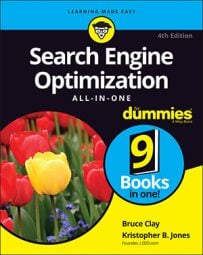In order to be successful with your SEO strategy, you need to know what search engines really see as keywords. When someone enters a search query, the search engine looks for those words in its index. Here are some general things the search engine looks for:
Web pages that contain the exact phrase.
Web pages that have all the words of the phrase in close proximity to each other.
Web pages that contain all the words, although not necessarily close together.
Web pages that contain other forms of the words (such as customize instead of customization). This is called stemming.
Web pages that have links pointing to them from other pages, in which the link text contains the exact phrase or all the words in a different sequence.
External web pages that link to this site from a page that is considered to be about the same keyword.
Web pages that contain the words in special formatting (bold, italics, larger font size, bullets, or with heading tags).
The preceding list gives you some of the clues a search engine would use to determine your site’s keywords. They are not listed in order of priority, nor do they represent an exhaustive list (because the search engines keep their methods a secret). All mystery aside, the search engine’s main goal is to give users the most relevant results. If a search engine cannot clearly connect a user’s query to keywords on your web page, it won’t include your site in the search results.
You should also put each page’s keywords into its Meta keywords tag (part of the HTML coding for your web page). Opinions are divided within the SEO industry on this point, however. Around 2005, the search engines said they would no longer weigh the keywords tag heavily, if at all, because so many webmasters had abused it by cramming it full of words that didn’t pertain to their sites.
Although this obviously lessened the overall importance of the keywords tag, a keywords tag containing appropriate phrases that are also used in the page content definitely helps your web page to rank highly. In addition, Google recently recommended that sites use the keywords tag to list common misspellings of company names or products. This confirms that Google does indeed consider the keywords tag in some searches.

